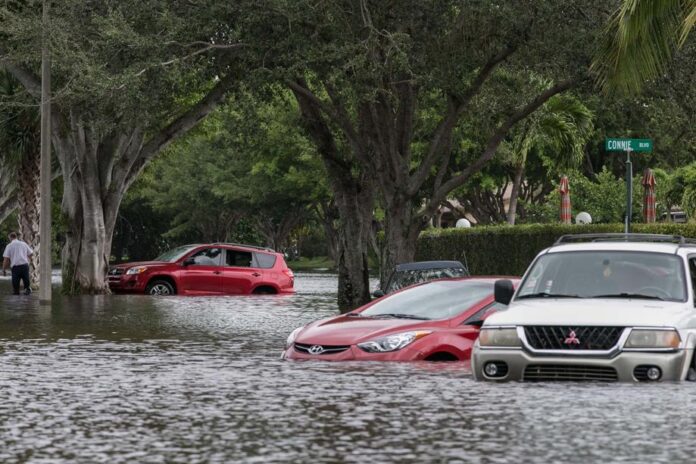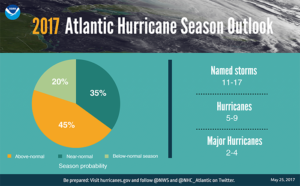An unusually active hurricane season has gotten off to an early start this year. The National Oceanic and Atmospheric Association (NOAA) has made their predictions for the Atlantic hurricane season. The season occurs from June 1 – November 30. NOAA believes 11-17 storms will be named. Five to nine storms will become hurricanes and two to four will develop into major hurricanes.
Many Floridians have proper supplies and food in preparation for a storm, but what about the car? “The majority of damage done to vehicles during a hurricane or tropical storm is from wind and water,” reports Dustyn Shroff, Vice President of GreatFlorida Insurance, Florida’s largest independent car insurance agency.
Incidentally, water damage can total your car. To prevent your car from damage here are some tips from Ready.gov:
If possible, move your car into a garage or covered area before a storm.
Have a full tank of gas if an evacuation is possible.
If you are caught in your car during a storm and the water is rising, move out of the car and get to higher ground.
Do not drive through a flooded area. Six inches of water can cause a vehicle to lose control and possibly stall. A foot of water will float many cars.
Be aware of areas where floodwaters have receded. Roads may have weakened and could collapse under the weight of a car.
Before the next storm ramps back up, make sure you have the proper car insurance in place. Collision covers your vehicle if it is hit or if it hits anther object including a car. During a storm, you can easily lose control of your car and crash.
“Comprehensive coverage includes flood damage,” says Buck with GreatFlorida Insurance, Florida’s leading independent car insurance company.
Before you file a claim with your insurance company, take note of any electrical problems, rust, upholstery discoloration and staining, brittle wiring, silt and mud inside the vehicle and mildew or mold from moisture.
Additional assessing of your vehicle includes, checking the oil indicator. If it is too high, there may be water in your engine. You do not want to start your car because it can cause damage. Also, determine how long your car was submerged and how deep the water was. Was it fresh or saltwater? Fresh water is less damaging. By the way, warmer weather after a storm can accelerate corrosion.
If you are looking for affordable car insurance, check out GreatFlorida Insurance today.





